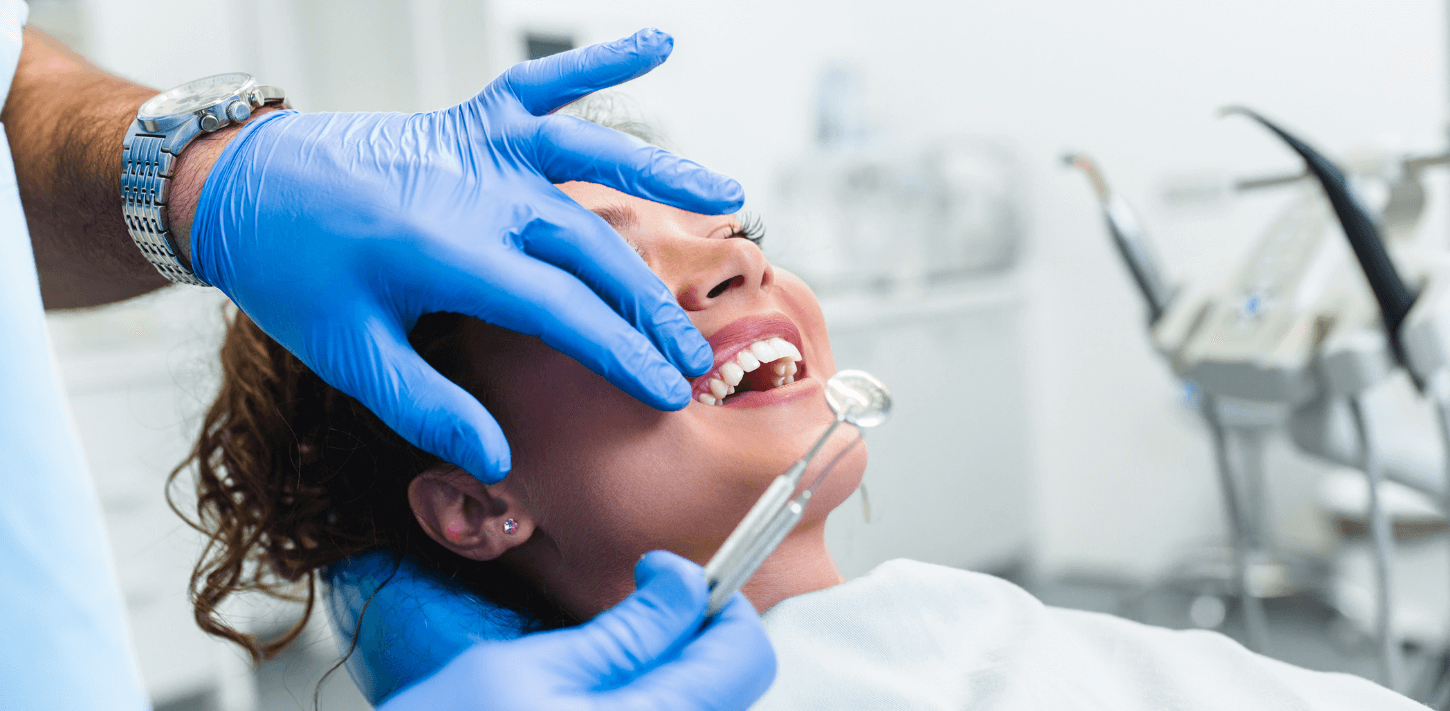
Your oral health can act as a beacon for any underlying overall health problems you may have. That’s why it’s so important to have regular periodontal checks to assess the state of all the structures that support your teeth; the gums, root surface, jaw bone, and the joints between the teeth and bone. Periodontal appointments differ from hygiene appointments in that the treatments given do not solely deal with keeping the teeth clean and healthy. Periodontists will treat advanced gum disease and its symptoms at a deeper level. If you’re struggling to keep gum disease under control, or you’ve been referred by your regular dentist, a periodontist can provide relief and remedying actions.
Book Appointment Before
Before After
AfterSmile enhancement after removal of soft tissue lump, case by Dr Stella Kourkouta.
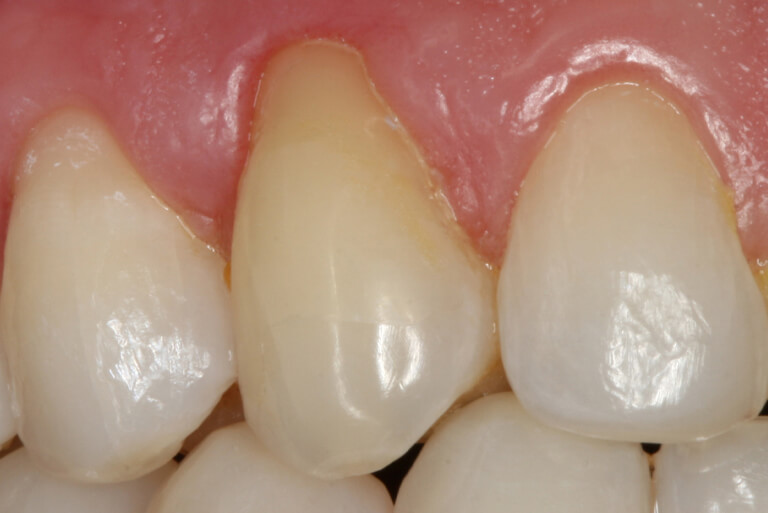 Before
Before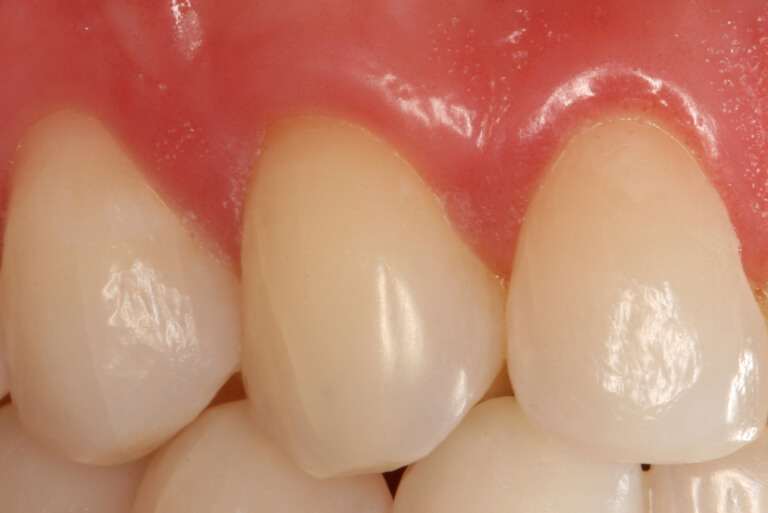 After
AfterRoot coverage of upper canine, case by Dr Stella Kourkouta
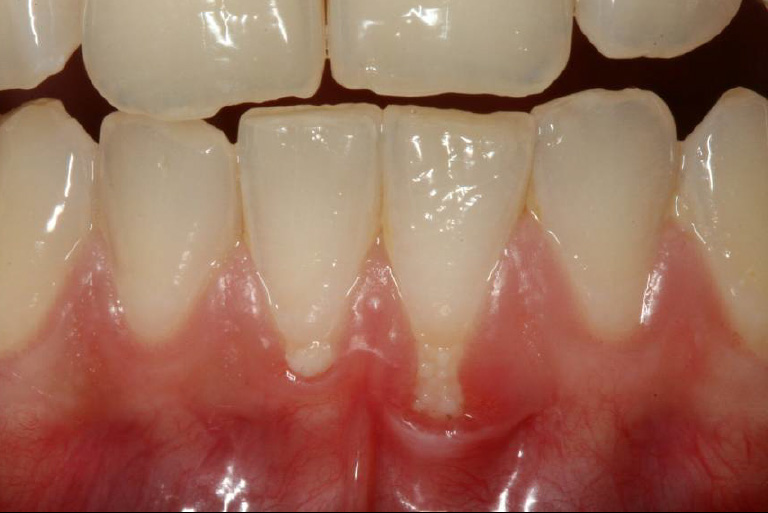 Before
Before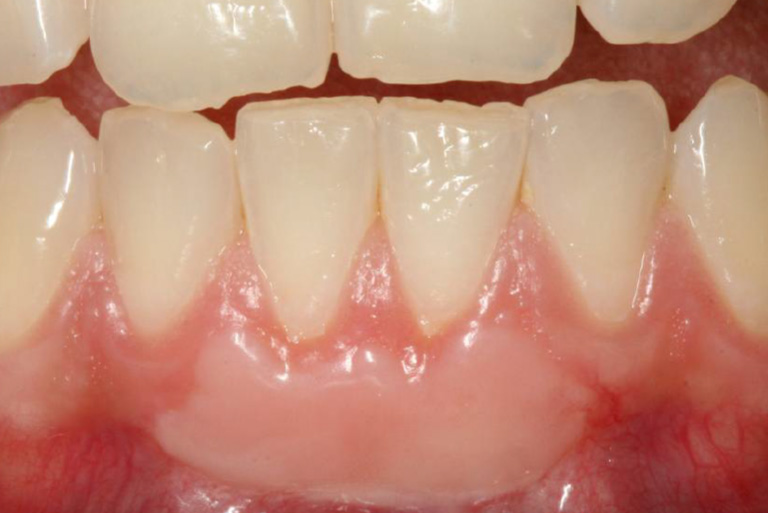 After
AfterRoot coverage of lower central incisors, case by Dr Stella Kourkouta
 Before
Before After
AfterGingival (gum) augmentation of a lower incisor, case by Dr Stella Kourkouta
It’s important to be aware of a deterioration in your oral health. Stress, a lack of care, and dental neglect have occurred widely in the UK in recent months and this has likely led to an increase nationally in unstable gums. When left untreated, gum disease can have very serious and far-reaching consequences. It has been connected to heart disease and strokes. It has been proved that keeping on top of your oral health can prevent deeper health issues, so preventative periodontal check-ups are also of the utmost importance.
Periodontitis is a gum infection with serious consequences. It is the result of untreated gum disease and can have a catastrophic effect on your overall health. A Periodontist will keep gum disease under control and treat advanced gum disease.
Hygiene appointments are designed with your tooth health in mind. Periodontal check-ups will ensure your gums and supporting tissues and bones remain healthy.
Deep cleaning treatment, bone grafting, root planing, the removal and recontouring of soft tissue.
The symptoms of periodontitis include swollen or bleeding gums, an unpleasant taste in your mouth, or unpleasant breath, loose teeth and gum abscesses.
A specialist periodontist can treat periodontal disease, when it’s in its advanced stages. Your regular dentist will refer you to a periodontist if you have advanced gum disease.
* These fields are required